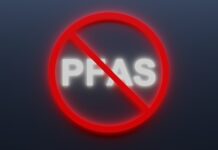
Listeria is a persistent problem in food processing plants, especially if proper food safety precautions aren’t in place. This problem can quickly turn fatal. According to the CDC, Listeria is responsible for 1600 cases of listeriosis and 260 deaths each year.
2016 saw a huge number of food recalls, including many because of Listeria. These recalls impacted hundreds of products distributed under many brands. Here are the foods that caused the most Listeria-related recalls last year.
Frozen vegetables
Spring and summer brought two back-to-back recalls of frozen products, including one of the biggest food recalls in the history of the United States.
First, in April, CRF Frozen Foods recalled 15 frozen vegetable products. Over the next few months, that recall expanded to include all of its frozen vegetable and fruit products going back to May 2014. The expansion affected a huge number of secondary products that contained ingredients supplied by CRF, from frozen vegetable mixes and not-ready-to-eat frozen items to prepared foods (e.g., frozen fried rice) and even salads.
All told, the recall impacted more than 350 consumer products under 42 brands, plus at least 100 products prepared by other companies. As of the end of the CDC’s investigation, nine people had been hospitalized, and three of them had died.
Just a short time later, National Frozen Foods recalled several brands of frozen vegetables distributed at Walmart and Target. This recall also expanded to a number of secondary products, from fresh prepared salads to frozen RTE meals.
There were a few smaller Listeria-related frozen vegetable recalls as well, like Alimentos Congelados’ recall of frozen broccoli and Cambridge Farms’ recall of frozen corn.
Seeds and nuts
The next biggest Listeria story was the SunOpta’s recall of its sunflower kernel products. Again, this recall started with a limited number of products and was expanded as time went on.
This recall also affect a large number of products and brands because companies that make everything from trail mix and energy bars to seed butters and meal replacements use SunOpta sunflower kernels in their products.
In a separate (and much smaller) incident, several types of nuts and nut-containing products were recalled after walnut supplier Woodstock Farms Manufacturing found Listeria in two lots of the product.
Salads
The frozen vegetable and sunflower seeds recalls led to a host of recalls of RTE salads, salad mixes, salad toppings, and salad dressings. For example, Pita Pal Foods recalled four types of salads that used frozen corn from CRF, Green Cuisine recalled pasta salad containing green peas from NFF, and Kroger recalled broccoli raisin salad that had SunOpta sunflower seeds.
There were a few other salad recalls as well. In January 2016, Dole temporarily suspended operations at its Springfield, OH, facility and withdrew all Dole-branded and private label packaged salads processed at the facility. And in April, Reser’s recalled 19 refrigerated salad items (potato salad, macaroni salad, etc.), which had been distributed to 29 states plus British Columbia, because of Listeria in a batch of onions.
Ice cream
It was a bit of a rough year for ice cream lovers, especially fans of cookie dough ice cream.
Iowa’s Aspen Hills recalled several varieties of cookie dough that served as an ingredient for many ice cream producers. The most high-profile one was Blue Bell, which first recalled a small number of select ice cream products and later all products containing Aspen Hills cookie dough. While several other brands were affected, Blue Bell was hit the hardest as the company was still recovering from the 2015 recall of all of its products.
In another incident, the discovery of Listeria at the facility of contract manufacturer Dr. Bob’s of Upland set off a ripple effect of bad news for consumers in California. Several local ice cream brands used Dr. Bob’s services and had to issue recalls of their own. The effects of the recall were enough to put Dr. Bob’s out of business.
Finally, Nestle recalled two pack sizes of its signature Drumsticks after finding Listeria on the equipment contact surfaces of a production line.
Hummus
In what turned out to have a widespread impact, Sabra Dipping Company recalled a large number of hummus products after Listeria was identified at the manufacturing facility. Over the following days, this recall expanded into several secondary recalls of products that contain Sabra’s hummus, including Taylor Farms bistro boxes, Schnucks snack trays, and several types of sandwiches sold at 7-Eleven stores. In 2015, Sabra had a similar problem, recalling 30,000 cases of hummus.
Separately, Bakkavor Foods recalled two varieties of Trader Joe’s hummus. The recall, which covered 30 states, was issued after the company found Listeria in product that had been manufactured on the same equipment.
RTE sandwiches and wraps
Like the salads above, RTE sandwiches and wraps were also casualties of the frozen food recalls. For example, Essential Foods recalled its gourmet wraps, which contained NFF frozen peas.
In addition, IFS recalled sandwiches from foodservice distributors and school districts in nine states after environmental testing revealed Listeria. The initial recall started small and then expanded after additional testing was performed. And Progressive Gourmet recalled sausage egg muffins that had been sold in Starbucks stores across Arkansas, Texas, and Oklahoma.
Fresh-cut fruits and vegetables
Finally, the fruit and vegetable recalls weren’t limited to frozen products. Country Fresh recalled 30,000 cases of fresh-cut vegetable products, including stir fry vegetables, fajita mix, and veggie kabobs. The products were distributed in 11 Southern states, primarily North and South Carolina and Georgia.
And Fresh From Texas recalled multiple products containing sliced red apples, such as fruit trays, bags of sliced apples, and snack packs.
________________________________
These seven product categories represent the majority of Listeria-related recalls in 2016. But not all of them. There were also recalls of cheeses, fish products, Eggo waffles, and more.
With direct costs averaging $10 million per incident, recalls are “the food industry’s biggest threat to profitability.” Between FSMA and increased FDA inspections, the number of recalls is expected to grow this year. Food companies that devote their resources to getting it right now will be the big winners down the road.







